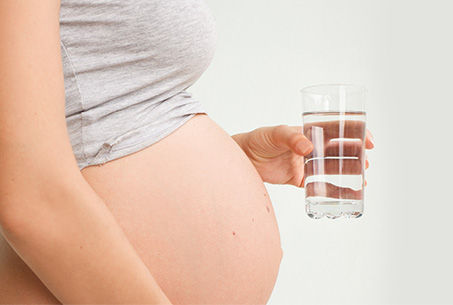Breastfeeding is the best for babies and a healthy diet / maternal nutrition is important when breastfeeding. A decision not to breastfeed can be difficult to reverse. Infant formula is suitable from birth when babies are not breastfed. It is recommended that all formula milks be used on the advice of a doctor, midwife, health visitor, public health nurse, dietitian, pharmacist, or other professional responsible for maternal and child care and the financial implications should be considered. All preparation and feeding instructions should be followed carefully as inappropriate preparation could lead to health hazards.
Knowing How To Stay Hydrated During Pregnancy

What to Know
We've all been there: you're trying to get some uninterrupted rest, but nature calls and you have to wake up to urinate! Frequent trips to the bathroom are inevitable if you're drinking ample fluids to support your pregnancy – it's not only natural, but also an indicator of good health.
Here are some things you should know about hydration and urination:
- Adequate hydration means frequent urination
- How to achieve adequate hydration
- Better urination timings means better sleep cycles.
Remember that fluid recommendation for pregnant women are higher - approximately 8 – 10 230 ml cups per day. Increases in blood volume pumping through your body to support the foetus requires an increase in fluid intake. This is true even when your pregnancy progresses and there’s lesser room for your bladder to expand!
What to Do
Here are some tips to ensure that you get adequate hydration:
1. Carry water or other healthy beverages with you during the day, in a form that you are likely to drink
Are you a fan of cold water? Bring along an insulated thermos or water bottle with plenty of ice. Or do you prefer warm drinks? Then consider a thermos of your favourite decaffeinated tea or warm water. Remember - caffeine acts as a diuretic and may increase urination. The American Congress of Obstetricians and Gynecologists recommends that pregnant women should limit their caffeine intake to no more than 200mg per day while pregnant. So, cut back on that cup of morning coffee, or swap it out for a decaffeinated version! Do also watch out for hidden caffeine in some of your favourite foods and drinks, such as chocolates and energy drinks.
2. Drink between rather than at meals.
As your little baby grows inside you, your abdominal organs become compressed. Thus, focus on food and nutrition during meals and take your beverages between meals - this will reduce unnecessary stress on your stomach and bladder.
3. Opt for water
It's fine to take healthy beverages, but remember that nothing beats a cup of plain water. While anything liquid at room temperature is considered a fluid, water is what our body needs for good health and hydration. In addition to avoiding excessive caffeine intake, also remember to avoid added sugars and non-nutritive calories. This means limiting sweetened drinks, teas and sports drinks.
4. When in doubt, write it down
We get it - pregnancy is not easy, and keeping track of fluid intake may not be intuitive for everyone. Write down your fluid intake using a note pad or an application to see when, what and how much you are actually drinking.
5. Drink more fluid earlier in the day
Start sipping on water early in the day. Starting earlier will not only help you reach your fluid intake goals sooner in the day - it also helps you to limit those dreadful bathroom trips to waking hours.

Ask Our Careline
Whatever’s on your mind, we’re here to help



